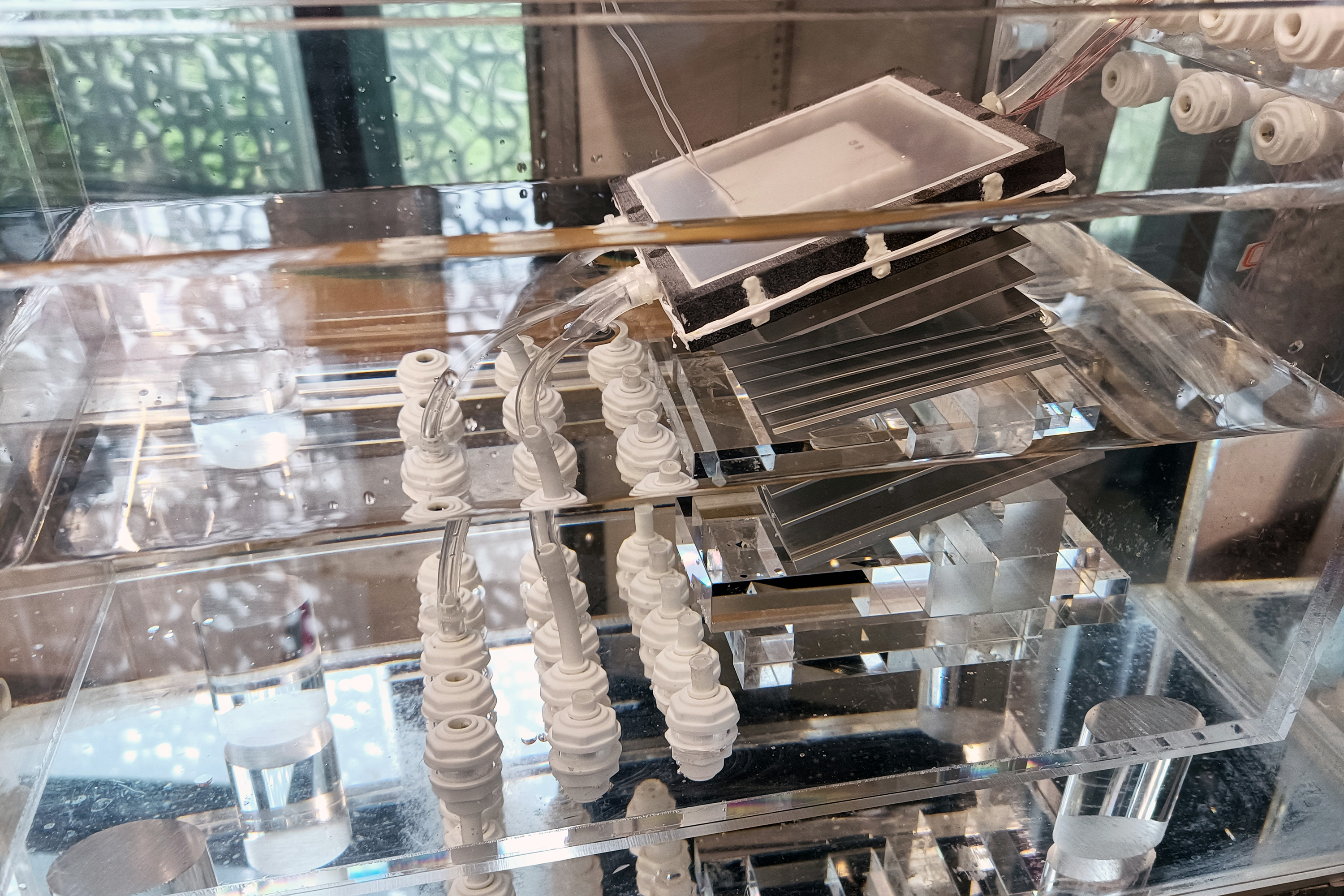Engineers at MIT and in China are aiming to turn seawater into drinking water with a completely passive device that is inspired by the ocean, and powered by the sun.
In a paper appearing today in the journal Joule, the team outlines the design for a new solar desalination system that takes in saltwater and heats it with natural sunlight.
The researchers estimate that if the system is scaled up to the size of a small suitcase, it could produce about 4 to 6 liters of drinking water per hour and last several years before requiring replacement parts. At this scale and performance, the system could produce drinking water at a rate and price that is cheaper than tap water.



Sounds so easy for you but what to do with the excess salt is the only real problem with desalination that we have for decades now. It’s not easy to solve.
That’s only the second part of the problem too. The first part is how do we stop the salt from building up inside the device?
You’ve got a point, but I’m going with ‘It’d eat into our profits and no-one’s making us’.